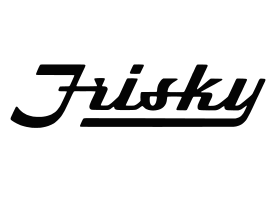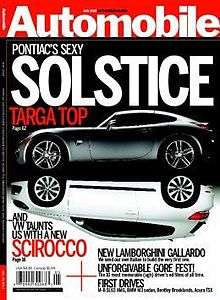
Meadows Frisky
Meadows Frisky is the name of a series of small British cars manufactured at the factory of Henry Meadows Ltd at Fallings Park in Wolverhampton between 1958 and 1961, during which time, production was under the control of a number of companies.
History
The Frisky car project was conceived by Captain Raymond Flower, racing driver and Managing Director of the Cairo Motor Co Ltd., Nuffield distributors in Egypt. Flower operated the company with his two brothers, Derek and Neville, all of whom were part of the brewing dynasty of Flower & Sons of Stratford on Avon. From February 1955, under the auspices of the Cairo Motor Company, a number of projects for the manufacture of cars in Egypt under the general name of Phoenix, were mooted in the press, possibly as a way of gaining favour with the government of President Nasser. However, as the relationship between Egypt and Britain deteriorated with the onset of the Suez Crisis in 1956, little of substance materialised.
As the potential for manufacture within Egypt dissipated, Raymond Flower took his idea of a small, mass produced, economical lightweight car for every-man to manufacturers in the UK, eventually reaching agreement with Henry Meadows Ltd to proceed with the project.

Car
A car is a wheeled, self-powered motor vehicle used for transportation and a product of the automotive industry. Most definitions of the term specify that cars are designed to run primarily on roads, to have seating for one to eight people, to typically have four wheels with tyres, and to be constructed principally for the transport of people rather than goods. The year 1886 is regarded as the birth year of the modern car. In that year, German inventor Karl Benz built the Benz Patent-Motorwagen. Cars did not become widely available until the early 20th century. One of the first cars that was accessible to the masses was the 1908 Model T, an American car manufactured by the Ford Motor Company. Cars were rapidly adopted in the United States of America, where they replaced animal-drawn carriages and carts, but took much longer to be accepted in Western Europe and other parts of the world.
Cars are equipped with controls used for driving, parking, passenger comfort and safety, and controlling a variety of lights. Over the decades, additional features and controls have been added to vehicles, making them progressively more complex. Examples include rear reversing cameras, air conditioning, navigation systems, and in car entertainment. Most cars in use in the 2010s are propelled by an internal combustion engine, fueled by deflagration of gasoline (also known as petrol) or diesel. Both fuels cause air pollution and are also blamed for contributing to climate change and global warming. Vehicles using alternative fuels such as ethanol flexible-fuel vehicles and natural gas vehicles are also gaining popularity in some countries. Electric cars, which were invented early in the history of the car, began to become commercially available in 2008.

Automobile (magazine)
Automobile is a United States-based automobile magazine published by TEN: The Enthusiast Network. A group of former employees of Car and Driver led by David E. Davis founded Automobile in 1986 with support from Rupert Murdoch's News Corporation– using the credo No Boring Cars.Automobile distinguishes itself as more of a lifestyle magazine than the other automotive publications, an editorial theme that Davis greatly expanded upon from his tenure as the editor of Car and Driver.
Unlike most other automobile magazines, Automobile does not often do instrumented tests of cars or provide much technical data. Instead, the reviews of vehicles are subjective experiential reports with the cars in their naturally intended, real world environment. Additionally, Automobile reserves a good portion of each issue covering vehicles no longer in production, but still relevant to collectors or automotive history as a whole. For example, the magazine includes features such as "Collectable Classic," an in-depth review of a particular older car, and reports from recent classic and antique car auctions. Automobile also has a regular column by former General Motors designer Robert Cumberford, who analyzes styling elements of current production models and show cars, often linking their design to those of older cars.
Automobile (disambiguation)
An automobile or car is a kind of wheeled motor vehicle. Automobile may also refer to:
Frisky
Frisky may refer to:
See also

Bread, Love and Jealousy
Bread, Love and Jealousy (Italian: Pane, amore e gelosia), known as Frisky in the US, is a 1954 Italian romantic comedy film directed by Luigi Comencini. It is the second part of the Italian trilogy, preceded by Bread, Love and Dreams and followed by Scandal in Sorrento.
Plot
Antonio (V De Sica) was in love with the midwife Annarella (Marisa) knowing that she has a kid son. Both of them were in love to each other, at the time the father of the kid who also serves in military will appear and with the help of the priest Dom Emidio (Virgilio) will take both of them with him.
Because of posting for 20 months out side Pietro (Roberto) will go out of the village and will ask the marshal to take care of Maria (Gina). Though she was not happy with captain, but because of poverty and collecting of the dowry, she will go to serve the marshal’s house as his med Caramella (Tina Pica) was not well.
The villagers will start spreading non sense about the marshal and Maria, which will reach to Pietro too. One day in a get together to the cousin’s house of Maria, marshal will dance with her, and getting pampered by out sliders both Pietro and Annarella will go there. By seeing them dancing intimately both of them break the relationship with each other. As the relationship gets broken, Maria will leave the house and will join to a dancing group. Her mother will shot help to the marshal saying that she is under aged girl. When the marshal will go for an enquiry the owner of the dance party will manage the mother of Maria with money, while marshal will come to know that she is not under age. Maria will try to seduce the marshal, but will not be success.

Frisky (song)
"Frisky" is a song by British rapper Tinie Tempah, crediting the song's producer Labrinth as its featured artist. The track was released in the United Kingdom on 7 June 2010 as the second single from the musician's debut studio album, Disc-Overy (2010). On the chart week, ending 19 June 2010, "Frisky" debuted at number two on the UK Singles Chart behind "Shout" by Shout for England.
Background
"Frisky" was first revealed on the radio show 'Koko Pop' on 17 April 2010, where both Tempah and Labrinth performed the track live. It was then four days later, on 21 April, that "Frisky" received its first radio play—from BBC Radio 1 DJ Zane Lowe. Speaking to Lowe of the track, Tempah said: "After Pass Out came out, there was a little bit of 'gosh', yeah the second one, we gotta get it right. Ultimately Zane, as you can probably tell, the record is about having a lot of fun and just trying to push boundaries and make unconventional music that doesn't have to sound a certain way. I just had fun with it, to be honest." before informing Lowe that "I learnt the kind of effective, during all the performances, especially doing Pass Out. It's a tune that kind of really connects with those sounds."
Podcasts:

